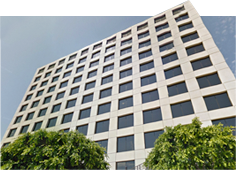FEDERAL JUDGES BLOCK IMPLEMENTATION OF NEW “PUBLIC CHARGE” RULE
Many of those applying for permanent residence status or certain non-immigrant visas can now breathe a sigh of relief, at least temporarily. On August 14, 2019, the Department of Homeland Security and USCIS had published a “Public Charge” rule amending regulations related to grounds for inadmissibility. This “public charge” rule was aimed at immigrants who may be deemed most likely at risk for needing public benefits such as welfare or food stamps in the future.
The Trump Administration claimed that this was necessary to help stop low income immigrants from burdening U.S. taxpayers, and force them to be self-sufficient. Opponents of the new rule cited it for its biases, including that it would unfairly block such immigrants from obtaining visas or green cards, and favor only wealthy immigrants. Some noted other negative outcomes such as the rule would disproportionately affect people of color, and it would also keep people in need from applying for vital social benefits.
How would this change have affected Immigration Applicants?
As part of implementing this public charge rule, the DHS revised several forms, adding questions that would help them determine if an immigrant could become a public charge. These forms included some of the most popular ones generally used by over a million applicants each year, such as Forms I-129, I-539, and I-485 (Application to Adjust Status to Permanent Resident). The new forms were set to be used in place of the current ones, beginning on October 15, 2019. Not surprisingly, the public charge rule set off a flurry of filings by those wishing to get their applications postmarked by October 14th, before the new forms were to go into effect.
However, on October 11, 2019, Federal judges stepped in to impose an injunction on the “Inadmissibility on Public Charge Grounds,” rule. The judges cited issues such as the rule’s exclusionary policy, its failure to provide statutes to support the change, and its lack of clarity regarding how a public charge would be determined. Supporters of the rule have already begun to oppose the Judges’ decision.
What does it now mean for Applicants?
Until further notice, applicants can now continue using the previous editions of the revised forms, which do not include the additional public charge questions. This is good news especially for green card applicants, many of whom have been reconsidering applying for permanent residence for fear of denial on the public charge grounds. In spite of this, it is still wise to take a cautionary approach and continue filing affected applications without delay. Applicants should bear in mind that the injunction is only temporary.






